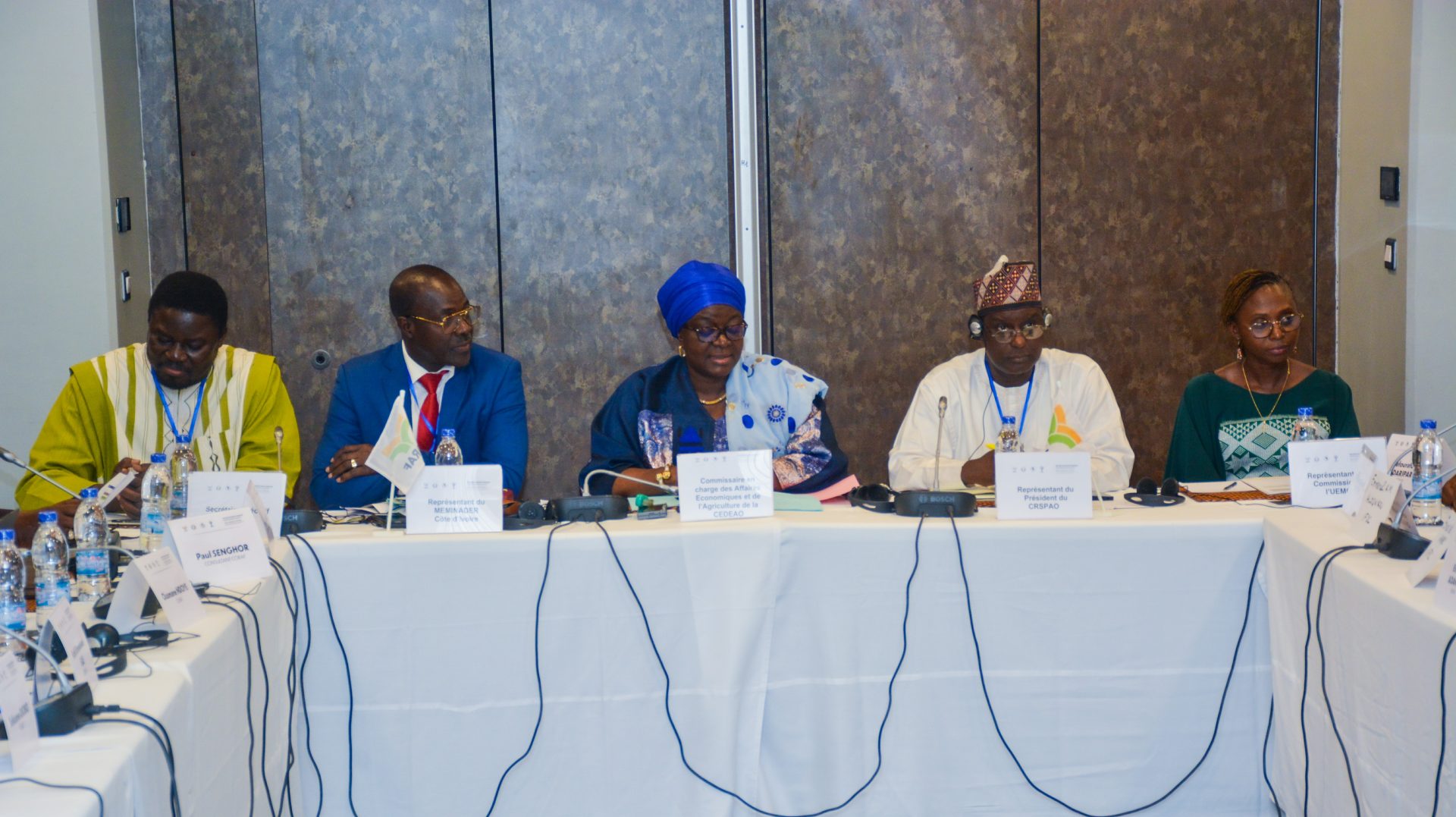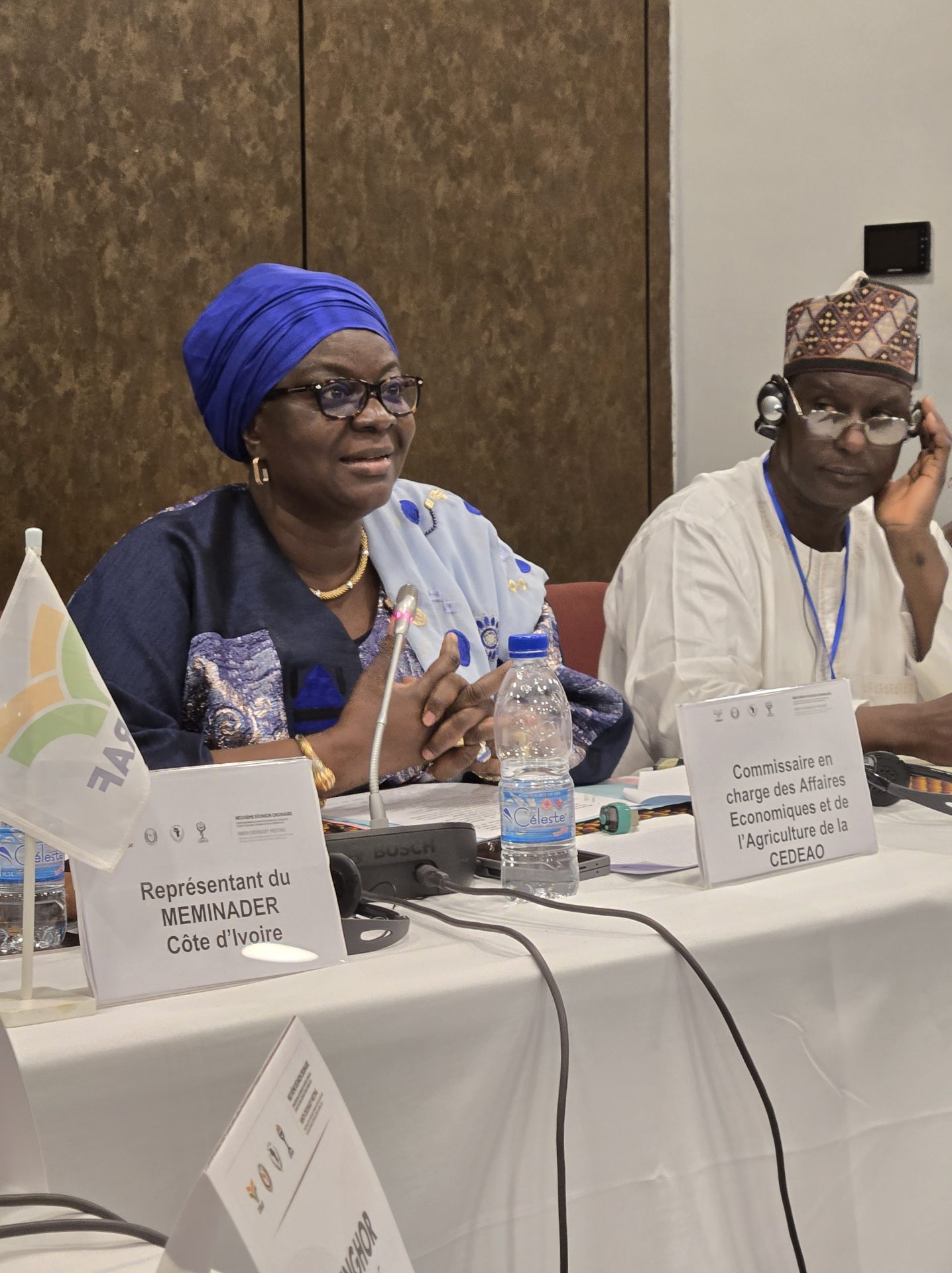9TH Statutory Session of the Regional Committee for Seeds and Plants of West Africa and the Sahel (CRSPAOS)
23 Sep, 2024The Economic Community of West African States (ECOWAS), the West African Economic and Monetary Union (UEMOA), and the Permanent Inter-State Committee for Drought Control in the Sahel (CILSS), in collaboration with CORAF, organized the 9th ordinary meeting of the Regional Committee for Seeds and Plants of West Africa and the Sahel (CRSPAOS) from 18th to 20th September 2024 in Abidjan, Côte d’Ivoire.
This annual gathering brought together representatives from ECOWAS and Sahel member states, regional and sub-regional seed institutions, technical and financial partners, as well as farmer organizations. The purpose was to assess the progress made in implementing the harmonized regional seed regulation, adopted by ECOWAS in 2008.
The main objective of this meeting was to review the implementation of the recommendations from the 8th session, held in Bissau in 2023, evaluate the state of application of the harmonized regional seed regulation within the ECOWAS-CILSS region, and assess the progress made in the establishment of the Regional Fertilizer Committees (COACE) and the Pesticides Registration Committees (COAHP).
“The successful implementation of the regional seed regulation goes hand in hand with strengthening the seed sector within each Member State. We must significantly enhance the capacities of all actors in the national seed value chain, enabling them to fully benefit from the harmonization of seed regulations,” stated Professor Pascal K. T. ANGUI, Director-General of Production and Food Security, representing Mr. Kobenan Kouassi ADJOUMANI, Minister of State, Minister of Agriculture, Rural Development, and Food Production of Côte d’Ivoire.
To fully achieve this objective, states must prioritize the implementation of the seed regulation. “The ECOWAS Commission recognizes the vital role of quality seeds in improving agricultural productivity to meet the goals of the common agricultural policy (ECOWAP) and the Comprehensive Africa Agriculture Development Programme (CAADP). The Harmonized Regional Seed Regulation aims, among other things, to create favorable conditions for the emergence of a strong seed industry, capable of ensuring regular, timely, and sufficient supply of quality seeds in the sub-region,” affirmed Madame Massandjé TOURE-LITSE, ECOWAS Commissioner for Economic Affairs and Agriculture.
The effective harmonization of seed regulations in the ECOWAS-UEMOA-CILSS area should eventually allow for the free movement of certified seeds, thereby contributing to improving
agricultural productivity and achieving food self-sufficiency in West Africa and the Sahel. CORAF, mandated by ECOWAS, UEMOA, and CILSS to implement and provide the technical secretariat for CRSPAOS, will continue to play a central role in coordinating and facilitating these dialogue platforms, with the technical and financial support of its partners, to ensure the effective implementation of harmonized seed regulations.
“The Regional Committee for Seeds and Plants of West Africa and the Sahel remains a key instrument for boosting agricultural development in West Africa and the Sahel, as it enables the implementation of regionally agreed strategies, contributing to the emergence of a strong regional seed industry,” said Dr. Moumini SAVADOGO, Executive Director of CORAF.
As it assesses the progress made during the previous session held in Bissau in 2023, this 9th edition will serve as a platform for discussions on the accreditation of seed systems to OECD standards and the establishment of committees for fertilizer control and pesticide registration.
On the sidelines of the meeting, the Regional Preparedness and Response Plan for Pest and Disease Outbreaks in West and Central Africa was officially launched.
The ceremony was chaired by Professor Pascal K. T. ANGUI, Director-General of Production and Food Security of Côte d’Ivoire, representing the Minister of State, Minister of Agriculture, Rural Development, and Food Production of Côte d’Ivoire. It also saw the participation of the ECOWAS Commissioner for Economic Affairs and Agriculture, UEMOA officials, CILSS representatives, and technical and financial partners.



















